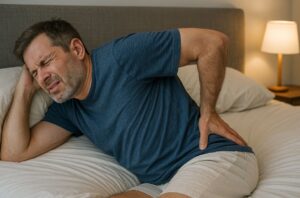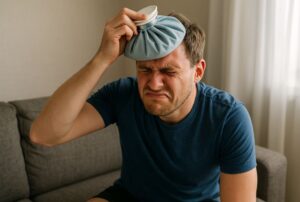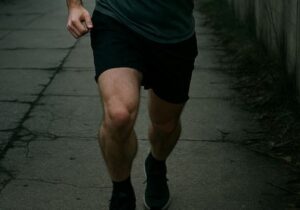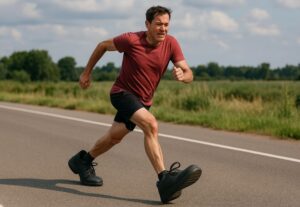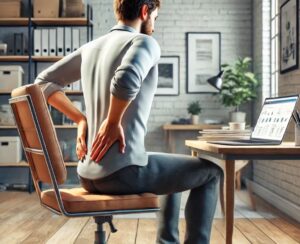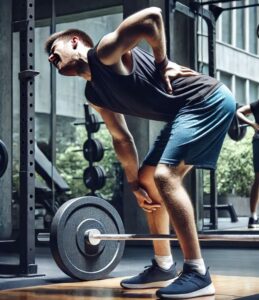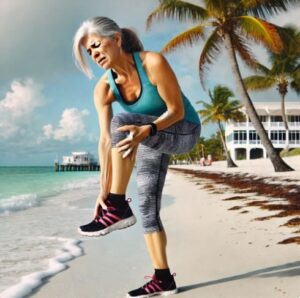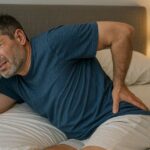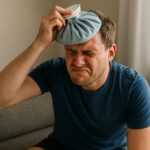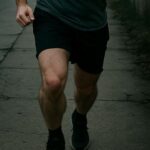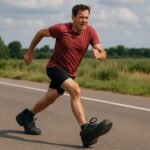Share this post
Hangover Hacks: Key West Edition
Key West’s bustling nightlife offers visitors and locals endless fun, but what happens the morning after? For many, it’s a dreaded hangover, complete with headaches, nausea, fatigue, and the unavoidable thirst. According to Dr. Jason Pirozzolo, a board-certified physician with years of experience, the secret to surviving a Key West hangover lies in preparation, hydration, and smart recovery tactics. “Hangovers are essentially your body’s way of reacting to the toxic effects of alcohol,” Dr. Pirozzolo explains. Understanding the key symptoms and how to address them can help anyone bounce back quickly.
Dehydration is one of the primary reasons behind the pounding headache that accompanies a hangover. Alcohol inhibits the body’s ability to retain fluids, leading to a drop in blood pressure and increased inflammation. Dr. Pirozzolo recommends  staying hydrated throughout the night. “Alternate every alcoholic drink with a glass of water,” he advises. Upon waking, rehydrate with water or an electrolyte-rich sports drink.
staying hydrated throughout the night. “Alternate every alcoholic drink with a glass of water,” he advises. Upon waking, rehydrate with water or an electrolyte-rich sports drink.
Alcohol irritates the stomach lining, often leading to nausea and vomiting. “This happens because alcohol increases acid production,” says Dr. Pirozzolo. Ginger tea, bland foods like toast, and staying upright can help alleviate symptoms. Avoid greasy or heavy meals, as they may exacerbate stomach upset.
Even if you manage a full night of sleep, the quality of rest is likely to be poor after drinking. Alcohol disrupts the REM sleep cycle, leading to fatigue the next day. Dr. Pirozzolo emphasizes the importance of rest. “Give your body time to recover. Sleep in if you need to, and don’t push yourself too hard.”
Alcohol acts as a diuretic, causing the body to lose fluids more rapidly. This leads to the classic dry mouth and insatiable thirst experienced after a night of drinking. “Rehydration is crucial,” Dr. Pirozzolo stresses. Water is essential, but drinks with added electrolytes, such as coconut water or sports drinks, can accelerate recovery.
Hangovers can heighten sensitivity to light and sound while making it difficult to focus. This is due to the impact alcohol has on neurotransmitters in the brain. Dr. Pirozzolo suggests minimizing sensory input. “Rest in a quiet, dimly lit room, and avoid screen time until you start feeling better.”
Dr. Pirozzolo offers several tried-and-true strategies for alleviating hangover symptoms. Sleep helps the body repair and detoxify. Water, sports drinks, and even broths can help restore hydration and essential electrolytes. A balanced meal can replenish vitamins and minerals. Foods rich in potassium, like bananas, are particularly helpful. For headaches or muscle aches, medications like ibuprofen or acetaminophen can provide relief. However, avoid acetaminophen if there’s a risk of liver damage from heavy alcohol consumption. Although some may turn to coffee, caffeine can further dehydrate the body. And while the “hair of the dog” method may seem tempting, it only delays the inevitable recovery process.
Dr. Pirozzolo stresses that the best way to avoid a hangover is through prevention. Moderation is the most effective strategy, he says. Additionally, following these tips can help minimize hangover severity. Drinking water before, during, and after alcohol consumption is essential. Consuming a meal before drinking slows alcohol absorption. Clear liquors like vodka tend to cause fewer hangover symptoms compared to darker liquors such as whiskey or rum. Alcohol depletes the body of essential nutrients, so taking a multivitamin can help maintain balance.
Hangovers may be a common consequence of enjoying a night out in Key West, but they don’t have to ruin the next day. With preparation, moderation, and smart recovery tactics, it’s possible to enjoy the nightlife while minimizing the aftermath.
Dr. Pirozzolo concludes with a reminder: “Hangovers are your body’s way of telling you it needs care. Listen to it, treat it well, and you’ll be back to enjoying life in no time.”
Want more expert tips on staying healthy during your adventures? Follow Dr. Jason Pirozzolo for future articles packed with practical health advice and insights.




